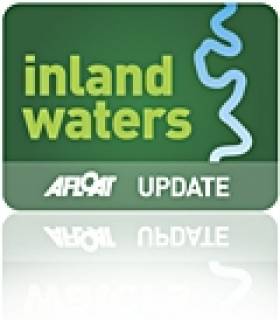Displaying items by tag: AARC
Minister Launches Fisheries Conservation Conference
#INLAND FISHERIES - Minister of State Fergus O’Dowd was on hand to launch the Atlantic Aquatic Resource Conservation (AARC) conference in Limerick on Wednesday 28 November.
The conference, attended by delegates from five countries, is intended to showcase integrated collaborative water resource management projects across the European Atlantic Arc, comprising Portugal, Spain, France, Britain and Ireland.
The AARC project is the culmination of work undertaken by 13 international partnerships across these five countries, and the conference provides an opportunity to share the research, findings and recommendations to support the conservation of native fish species.
As the project nears conclusion next month, all AARC project requirements have been met and exceeded in a number of cases, according to Inland Fisheries Ireland (IFI).
In Ireland specifically, the project has made a valuable contribution to the Shannon Salmon Restoration Plan (SSRP) which looks at redressing the decline in Atlantic salmon populations throughout the Shannon river system.
Overall, says IFI, AARC has provided an important instrument to facilitate a pan-European approach to conserving our indigenous, migratory fish stocks.
Speaking at the launch of the conference, Minister O’Dowd highlighted the importance of EU research programmes like AARC in enhancing international research and collaboration.
“The strong inter-regional co-operation, under AARC, between regional authorities and research institutions has increased our knowledge of the conservation requirements of these important European fish species,” he said.
“AARC has ensured that we will play our part in utilising this new knowledge and co-operation for the enhancement of the conservation status of important EU species and habitats.”
AARC is a three-year project, launched in 2009, which focuses on migratory stocks of protected fish species: shad, Atlantic salmon, sea trout, sea lamprey, European eel and smelt. Across Europe these species have economic, cultural and environmental value but are in decline.
The issue of their decline is truly transnational, says IFI, and can only be addressed through long-term intensive transnational collaboration.
A major theme running through the AARC project was establishing the role of wider stakeholders in the management of our aquatic resources. Many of the AARC partners have worked to engage local stakeholders in protecting, conserving and managing these resources through the AARC project activities.
In Ireland, the project dealt with restorative initiatives for Atlantic salmon in the Shannon system. This included determining the genetic composition of contemporary and historical populations of salmon in the Shannon and comparing the relative performance in the wild of the progeny Feale, Mulkear and Shannon wild and hatchery salmon populations.
IFI was joined in the project by fellow partners ESB Fisheries Conservation, University College Cork and the Marine Institute. Of the total project budget of €3.87m, Irish partners received €754,242 over the three years.
The Shannon AARC project will address issues pertaining to fish passage, water quality, habitat and hatchery programmes in addition to the construction of a project specific geograpgic information systems (GIS), co-ordination of stock assessment surveys and the promotion of catchment management.
Ultimately it will help identify important factors in the conservation of Atlantic salmon in the Shannon, and will provide a set of useful maps and a spatial visualisation tool for improved planning and development throughout the Shannon catchment.
Results will help inform fisheries staff of the current status of Atlantic salmon populations in the Shannon as well as provide a useful inventory or potential and/or historical salmon locations in the Shannon.
The project will also benefit inter-agency co-operation, particularly in relation to River Shannon fisheries management, and will strengthen the links with relevant research institutions and international fisheries experts.
























































